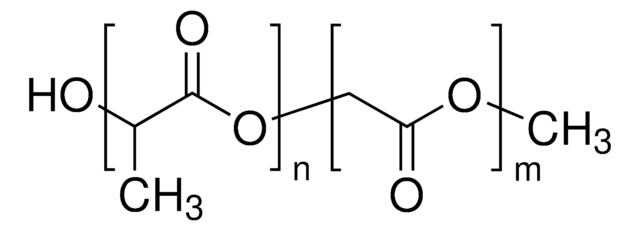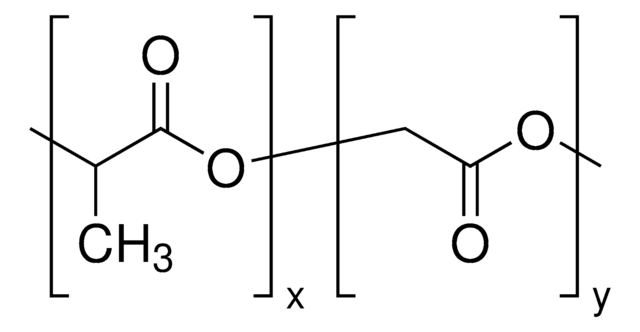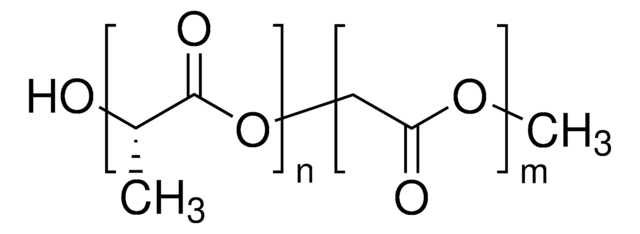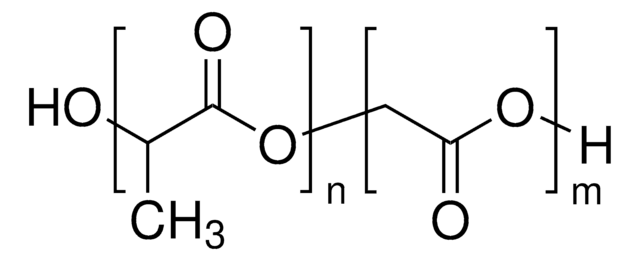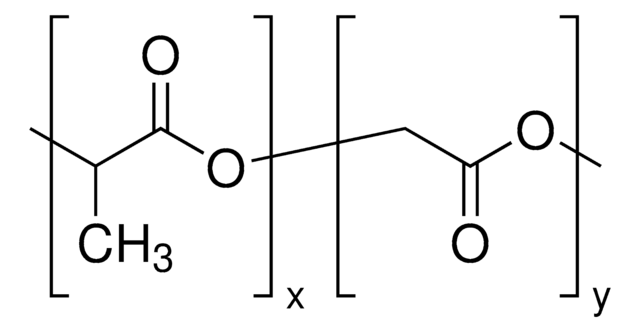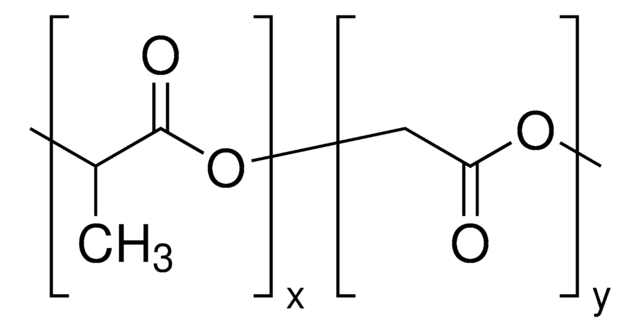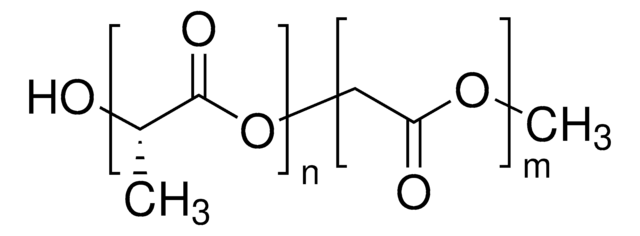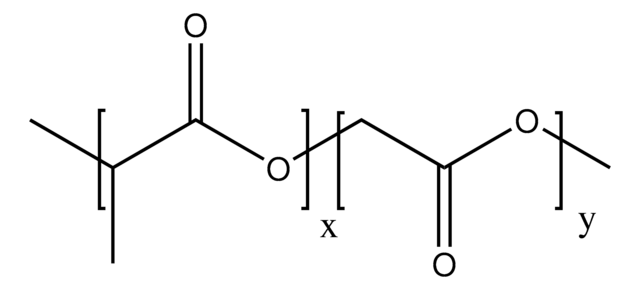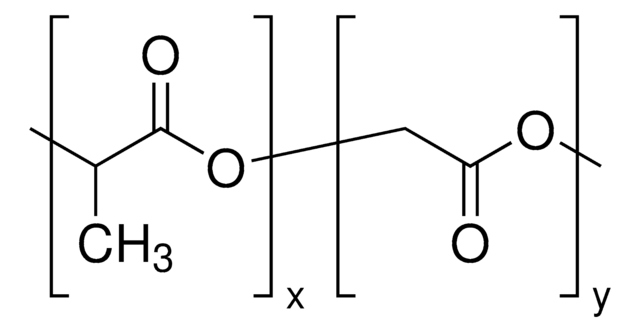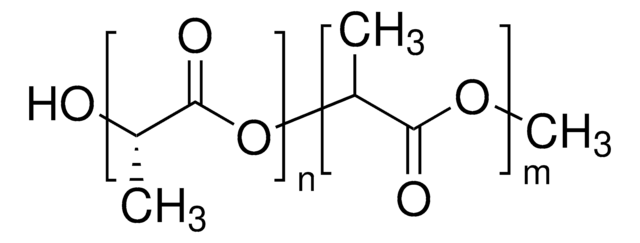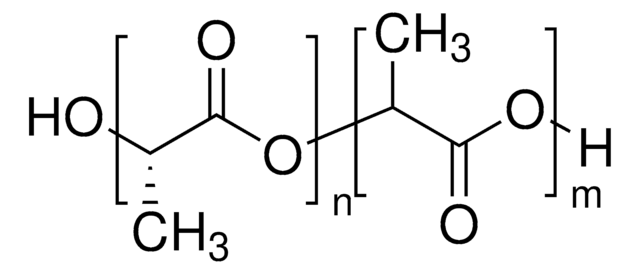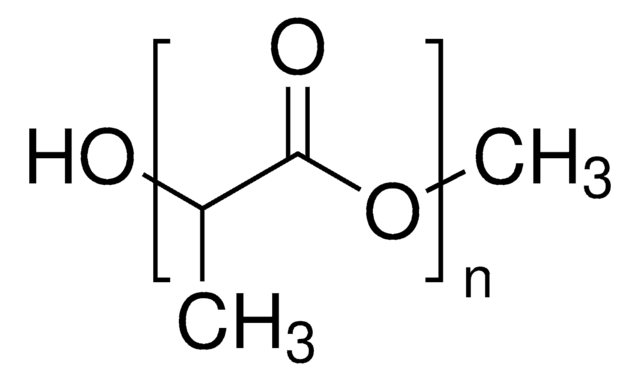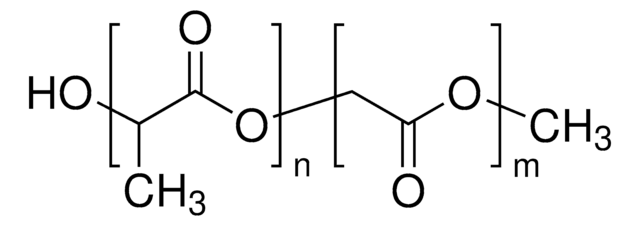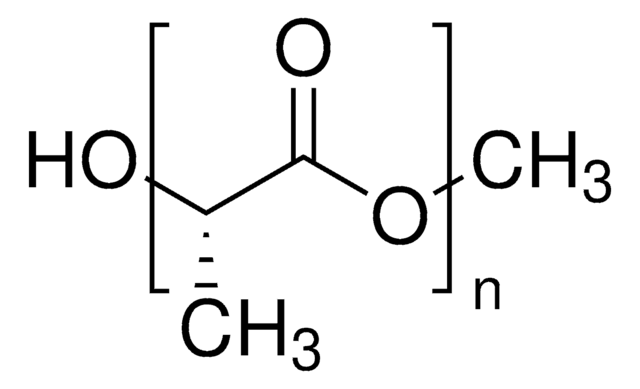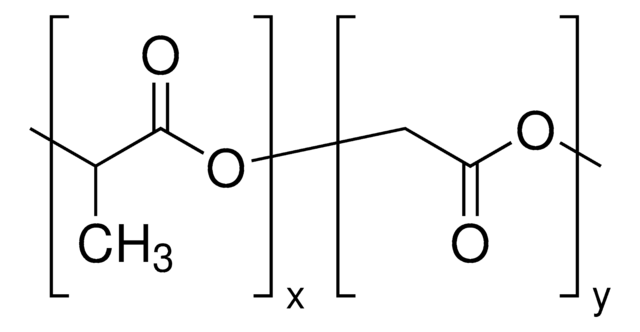769894
Resomer® LG 824 S, Poly(L-lactide-co-glycolide)
ester terminated, Lactide: Glycolide 82:18, lactide:glycolide 82:12
Synonym(s):
Resomer® LG 824 S, PLGA
About This Item
Recommended Products
Quality Level
form
solid
feed ratio
lactide:glycolide 82:12
viscosity
1.7-2.6 dL/g
mp
157-164 °C
transition temp
Tg 54-60 °C
storage temp.
2-8°C
Related Categories
General description
Application
Legal Information
Storage Class Code
11 - Combustible Solids
WGK
WGK 3
Flash Point(F)
Not applicable
Flash Point(C)
Not applicable
Choose from one of the most recent versions:
Certificates of Analysis (COA)
Don't see the Right Version?
If you require a particular version, you can look up a specific certificate by the Lot or Batch number.
Already Own This Product?
Find documentation for the products that you have recently purchased in the Document Library.
Customers Also Viewed
Articles
Professor Nicola Tirelli (Istituto Italiano di Tecnologia, Italy) highlights the microfluidic-assisted method for fabricating well-defined and reproducible nanoparticles for drug delivery research.
Professor Nicola Tirelli (Istituto Italiano di Tecnologia, Italy) highlights the microfluidic-assisted method for fabricating well-defined and reproducible nanoparticles for drug delivery research.
Global Trade Item Number
| SKU | GTIN |
|---|---|
| 769894-5G | 4061832921693 |
| 769894-25G | 4061832921686 |
Our team of scientists has experience in all areas of research including Life Science, Material Science, Chemical Synthesis, Chromatography, Analytical and many others.
Contact Technical Service